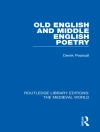Byzantine Ecocriticism: Women, Nature, and Power in the Medieval Greek Romance applies literary ecocriticism to the imaginative fiction of the Greek world from the twelfth to fifteenth centuries. Through analyses of hunting, gardening, bride-stealing, and warfare, Byzantine Ecocriticism exposes the attitudes and behaviors that justified human control over women, nature, and animals; the means by which such control was exerted; and the anxieties surrounding its limits. Adam Goldwyn thus demonstrates the ways in which intersectional ecocriticism, feminism, and posthumanism can be applied to medieval texts, and illustrates how the legacies of medieval and Byzantine environmental practice and ideology continue to be relevant to contemporary ecological and environmental concerns.
Mục lục
.- 1 Byzantine Studies in an Age of Environmental Crisis.- 2 Zoomorphic and Anthomorphic Metaphors in the “Proto-Romance” Digenis Akritis.- 3 Rape, Consent, and Ecofeminist Narratology in the Komnenian Romances.- 4 Witches and Nature Control in the Palaiologan Romances and Beyond.- 5 Byzantine Posthumanism: Autpoiesis, Sympoiesis, and an Eco-Ethics of Sustainability.
Giới thiệu về tác giả
Adam J. Goldwyn is Assistant Professor of Medieval Literature and English at North Dakota State University, USA. He is co-translator of The Allegories of the Iliad (2015), a paraphrase of the Homeric epic by the twelfth-century Byzantine grammarian John Tzetzes.












